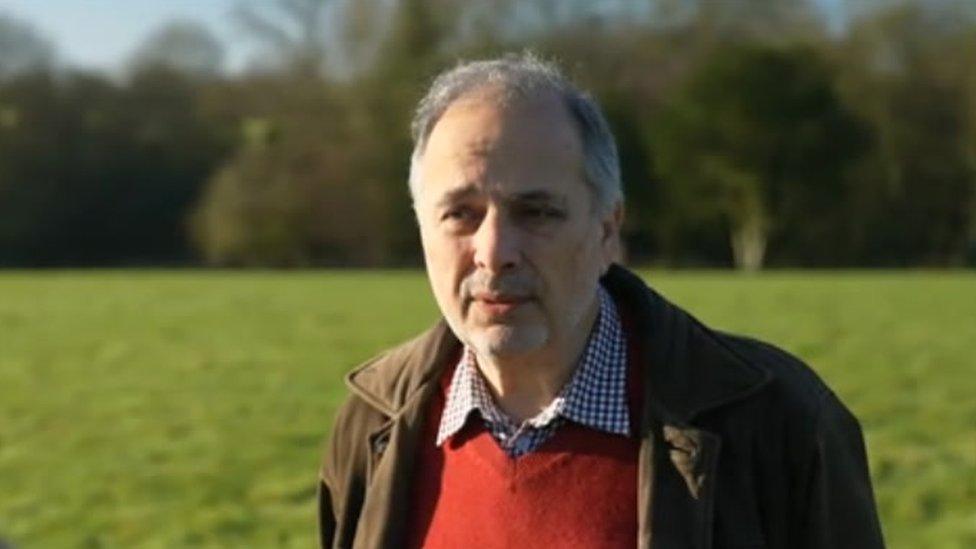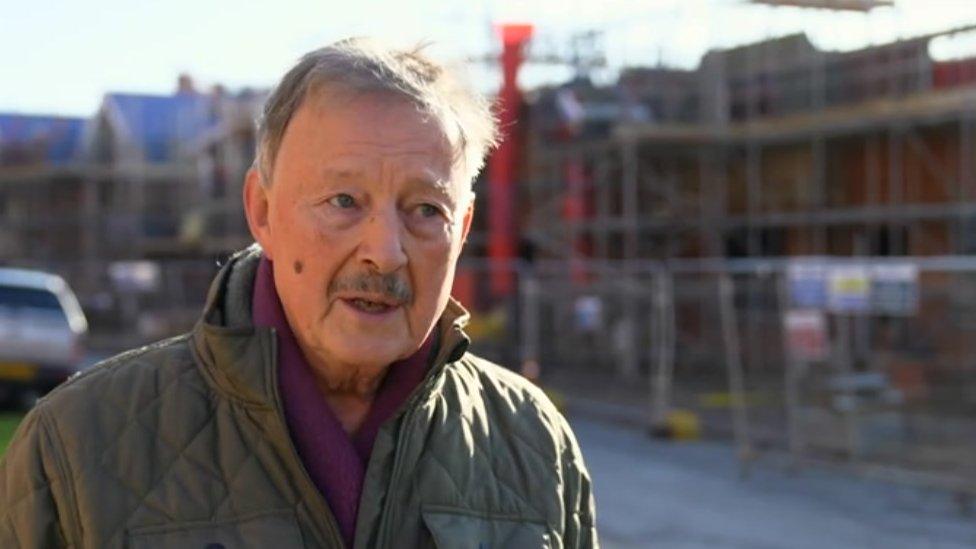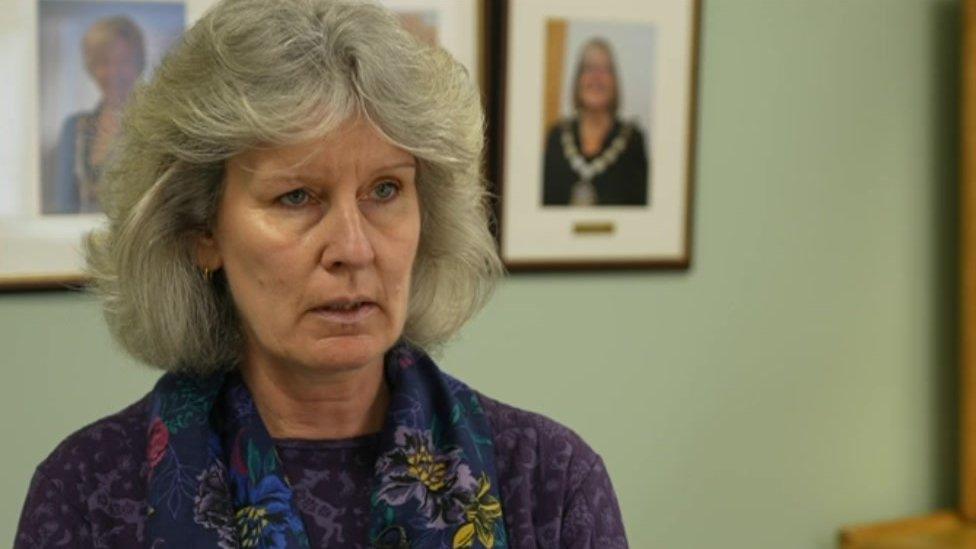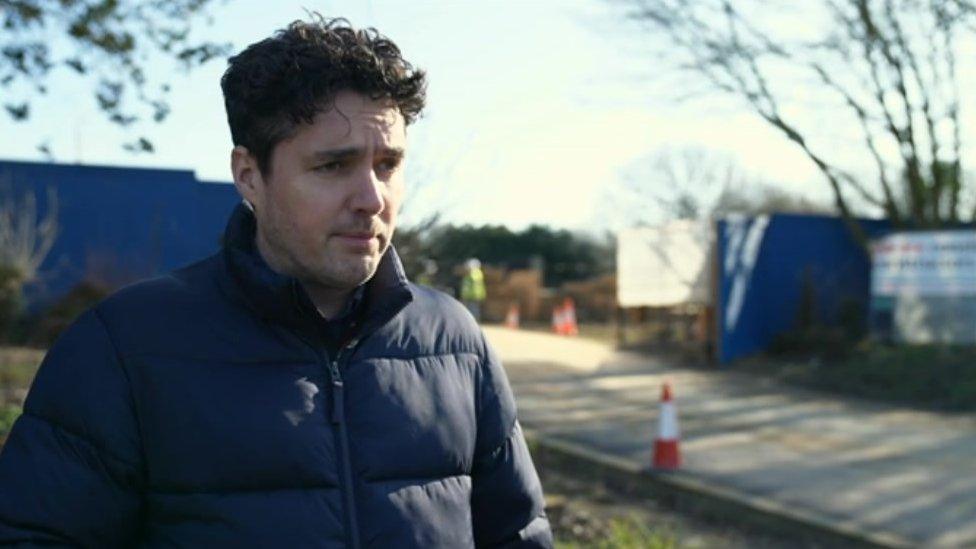Wealden Parish Councils object to government housing targets
- Published

Councillor Nikos Mikelis said the new homes target was unrealistic
Parish councils in East Sussex have written to the government objecting to its use of out-of-date population data to estimate housing need.
Councillor Nikos Mikelis said housing projections were based on Office for National Statistics (ONS) data from 2014 - not lower figures from 2018.
He said a target of 1,221 new homes per year in Wealden was "unrealistic".
The government said the old data gives "stability", but it was up to councils to set their own housing targets.
Mr Mikelis, from Chiddingly, said villages are being expanded into towns without the necessary infrastructure, and 24 parishes agreed.

David Dyke said he is not against development, but the lack of associated infrastructure
David Dyke lives close to a new development of 123 houses in Horam.
He said: "We're just about saturated. They talk about availability of school places, which there aren't. The doctors' surgery is swamped, of course. And the roads aren't coping."
Ann Newton, cabinet member for planning at Wealden District Council, said: "The district is one of the biggest in the country in geographical miles, but pushing 60% of it is protected, an area of outstanding natural beauty.
"That leaves only about 40% of developable land. To squash 1,200 houses a year into that is just wrong."

Ann Newton said the Wealden area is complicated because so much of it is protected land
Bexhill and Battle MP, Huw Merriman, said the whole the system is broken and "not working for anyone".
He said: "We don't have enough homes, particularly for young people to get on the housing ladder. Wages are low here. The house prices are really expensive.
"But what's really important is that we don't just build them hotchpotch in the green fields."

Huw Merriman said the current situation does not work for anybody
The Department for Levelling Up, Housing & Communities said in a statement: "The standard method for assessing local housing need is only the starting point in the process of planning for new homes.
"Councils, not central government, set their own housing targets in their local plan.
"Our guidance should be considered alongside local constraints, including the need for infrastructure to support new development, and consideration for the environment."

Follow BBC South East on Facebook, external, on Twitter, external, and on Instagram, external. Send your story ideas to southeasttoday@bbc.co.uk.